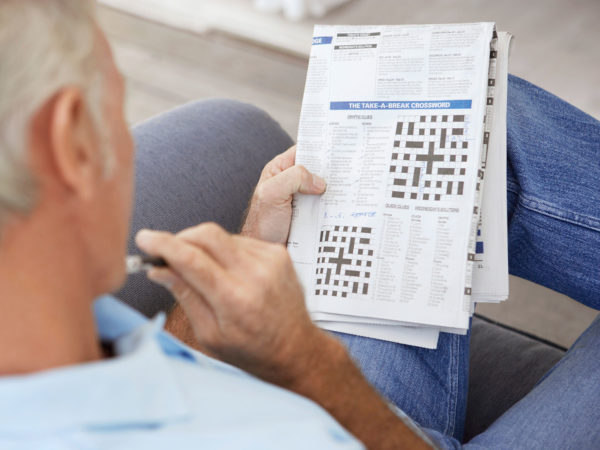Crossword Puzzles For Your Brain

This finding comes from an online survey in which researchers in the UK first questioned some 19,000 seniors about how often they practiced word or number puzzles and then asked them to take cognitive tests that help measure changes in brain function. Results showed that the more habitually participants did puzzles, the better their performance on tests assessing their reasoning, attention and memory skills. Based on these findings, the investigators from the University of Exeter and King’s College London calculated that the seniors who regularly work on word puzzles have brain function equivalent to 10 years’ younger than their chronological age on tests assessing grammatical reasoning and eight years younger on tests measuring short term memory. Study leader Anne Corbett of the University of Exeter Medical School concluded “we can’t say that playing these puzzles necessarily reduces the risk of dementia in later life, but this research supports previous findings that indicate regular use of word and number puzzles helps keep our brains working better for longer.”
My take? In my book, Healthy Aging, I describe various ways to help keep the mind agile and boost memory and concentration. I’ve long recommended card games and word puzzles as worthwhile pastimes to exercise the brain. In addition, I recommend taking on more challenging options such as learning a new language or taking up a musical instrument. If you use a computer, you’re familiar with the frustration of learning a new operating system. But this kind of challenge is exactly what is needed to force change on the brain’s neural network so that it will stay flexible and young.
Sources:
Anne Corbett et al, “The relationship between the frequency of number‐puzzle use and baseline cognitive function in a large online sample of adults aged 50 and over.” International Journal of Geriatric Psychiatry, February 11, 2019; DOI: 10.1002/gps.5085
Anne Corbett et al, “An online investigation of the relationship between the frequency of word puzzle use and cognitive function in a large sample of older adults.” International Journal of Geriatric Psychiatry, November 11, 2018; DOI: 10.1002/gps.5033
More from this week’s bulletin:
- Sweet Drinks And Early Death
- Replacing Meat With Fish
- This week’s recipe: Grilled Fish With Tropical Relish











